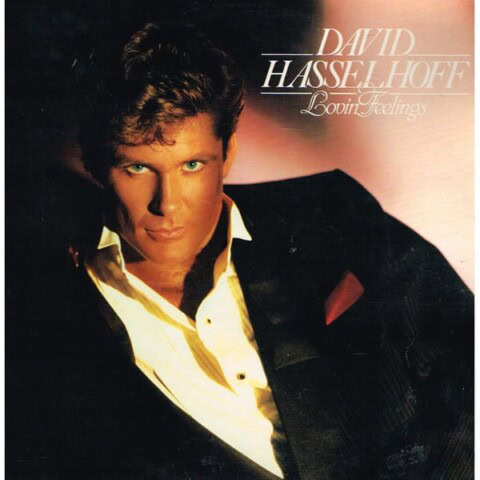 JUST LIKE MILLIONS of normal people, I was quite enamored with the self-titled 2009 debut of English trio The xx. In a pop scene that’s too full of noise, and not enough space, these teenagers had drawn a world that was intimate and understated and had a 5am after-party, drugs-and-alcohol-wearing-off-now feel without resorting to redundant chill-out grooves. And yet it was still pop, of sorts, and you could probably even sing along to Romy Madley Croft and Oliver Sim murmuring their discontent while the haunted backgrounds gently weeped and the electronic pulses kept throbbing, throbbing.
JUST LIKE MILLIONS of normal people, I was quite enamored with the self-titled 2009 debut of English trio The xx. In a pop scene that’s too full of noise, and not enough space, these teenagers had drawn a world that was intimate and understated and had a 5am after-party, drugs-and-alcohol-wearing-off-now feel without resorting to redundant chill-out grooves. And yet it was still pop, of sorts, and you could probably even sing along to Romy Madley Croft and Oliver Sim murmuring their discontent while the haunted backgrounds gently weeped and the electronic pulses kept throbbing, throbbing.
But I did get sick of it really quickly, and what at first seemed like atmosphere quickly transmogrified into clammy one-dimensionality, leaving me wondering what it was that I had seen in it in the first place. Perhaps the problem was that The xx were everywhere: on ads, in the supermarket, on TV shows.
Coexist has taken three years to coagulate, and that’s a lifetime in pop, especially when it’s only your second album. Still, the critics have been kind to it, and more importantly, it’s seen them transformed from indie sensations to stadium superstars. Me? I remain sitting on that fence, getting splinters in my bum from so much time spent not making up my mind.
Okay, as clichéd as this is, Coexist sounds to me like it’s suffering from that “difficult second album” syndrome. It sticks almost too closely to the original style, but sounds forced with it, and they sound almost bored. They haven’t figured out an escape from the one-dimensionality of that first album, and even though the songs – which are variations on the theme of love will tear you apart – don’t do a good job of convincing the listener that the lyrics come from a place called ‘experience’.
Romy’s vocals sound so artificially emotive (that means forcing a tired-sounding crack in the sound of the voice just at the right moment, not actually showing any real emotion) and the lyrics such a bland roll-call of early twenty-something love pains that not even the spectral beauty of the production can give life to the songs.
 The third member, Jamie Smith, is responsible for that vaguely dubstep-influenced sound, and there are moments when his work is effective. To his credit, Smith (who has become a popular DJ/producer during the group’s hiatus) keeps tight control on his dance influences, and when he does allow a big shuddering bass note to materialise, it’s more effective for its absence most of the time.
The third member, Jamie Smith, is responsible for that vaguely dubstep-influenced sound, and there are moments when his work is effective. To his credit, Smith (who has become a popular DJ/producer during the group’s hiatus) keeps tight control on his dance influences, and when he does allow a big shuddering bass note to materialise, it’s more effective for its absence most of the time.
But the canvas is just too blank. There are some reverberant guitar atmospheres, and a slightly irritating utilisation of steel pans, but too often the backgrounds end up sounding like an amateur Durutti Column without the finger-picking skills.
The xx are clearly in awe of early Cocteau Twins and other early ‘80s shoegaze bands like Everything But The Girl, but their atmospheres don’t resonate like the former, and their songs and singing aren’t anywhere near as accomplished (or emotive) as the latter.
But then again, those bands are probably considered too sonically invasive for the 21st century’s collective lapse in concentration, and The xx maybe give the sensibilities of its audience exactly what it’s looking for, straight from those Apple earbuds and inbetween the cognitive dissonance of a thousand texts. Nice album cover, though. GARY STEEL
Music = 3/5
Sound = 4/5

The xx – Coexist (XL/Rhythmethod) CD REVIEW
Latest from Music

Let there be drums!
Six diverse percussion compositions performed by virtuosic musician Justin DeHart challenge common notions about the most primal of instruments.

World’s Worst Records: Alison Gold’s Shush Up
Gold's follow-up to 'Chinese Food' was so regrettable and tasteless that she had to change her name, writes our dean of tack, MATT KELLY.

Heilung – A cyberpunk reimagining of ancient culture
Hardened atheist GARY STEEL attends bizarre show by German/Nordic group Heilung and has “spiritual” experience.

World’s Worst Records: David Hasselhoff’s Lovin’ Feelings
In part 2 of a survey of the complete musical works of Sir David Michael Hasselhoff, MATT KELLY describes a truly horrible record.

Wellington in the ’80s through the lens of an outsider music group
GARY STEEL reviews a new book that’s not only the story of an extraordinary band, label and scene, but an alternative history of Wellington









